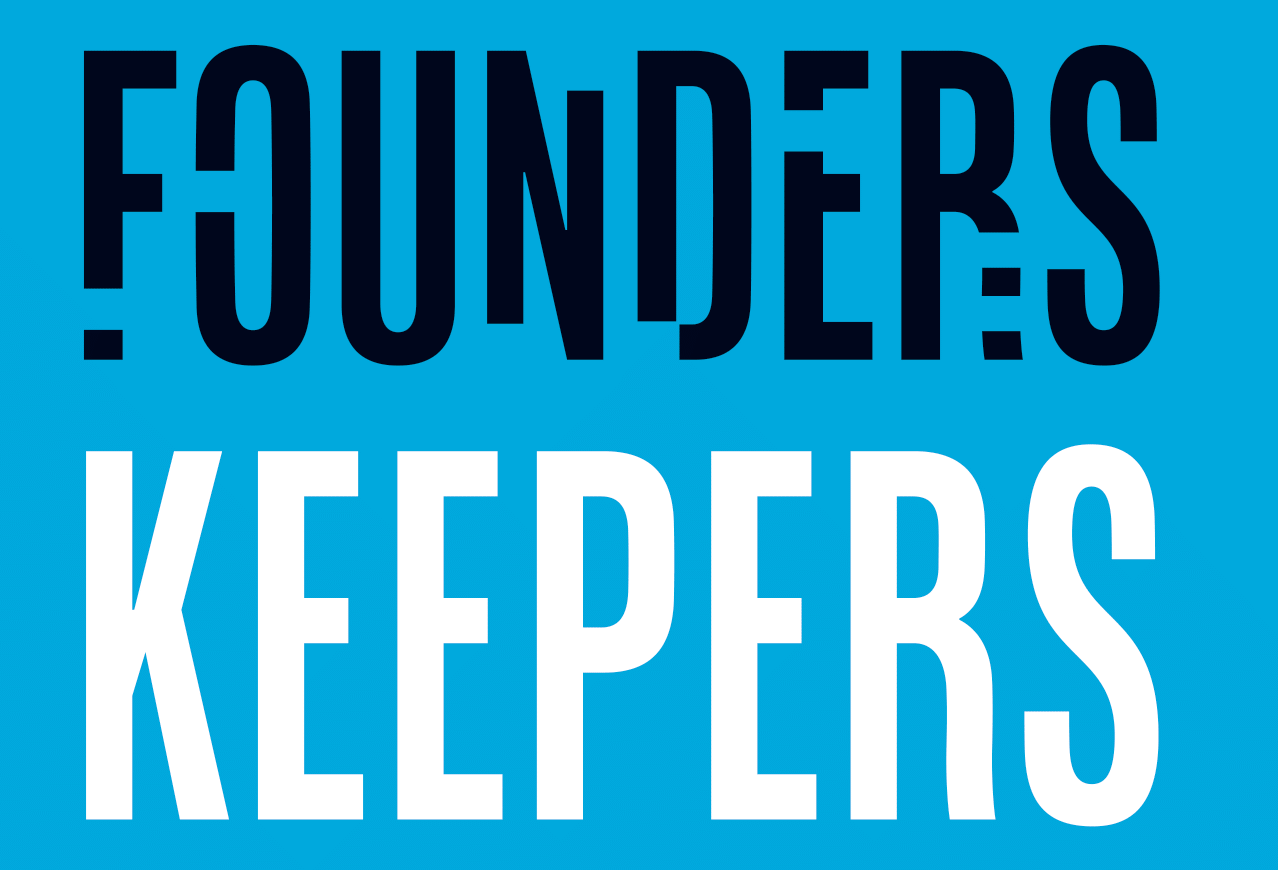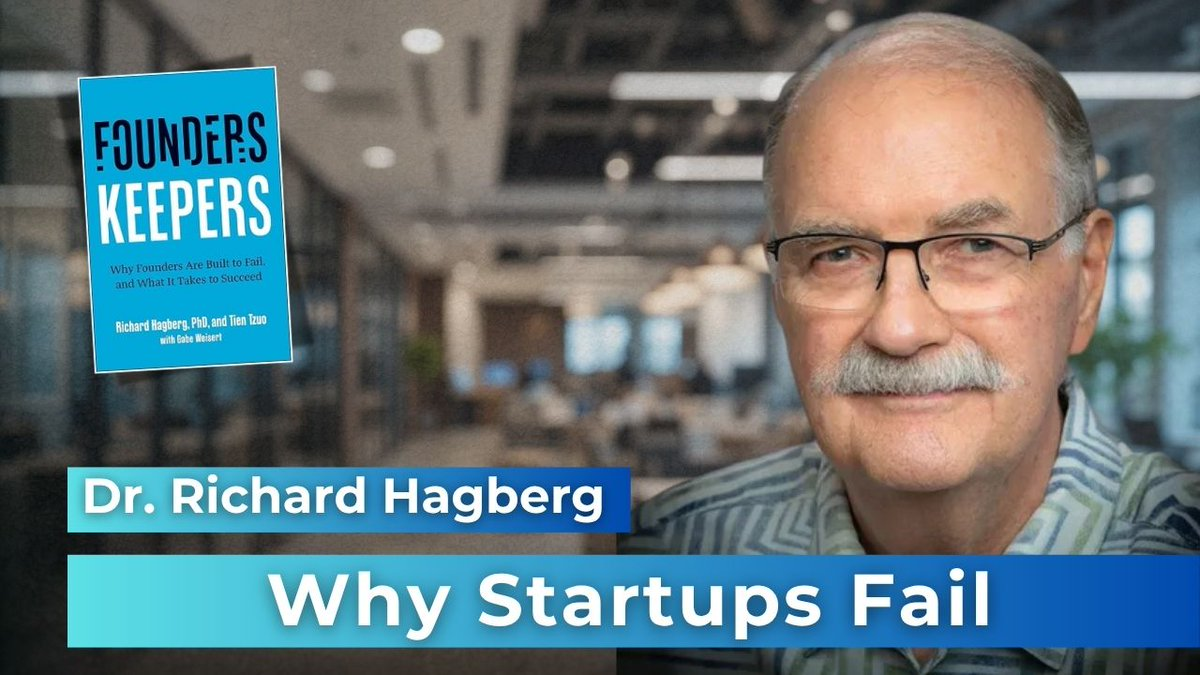Article
Rethinking Founder Mode: What Really Drives Startup Success?
September 12, 2024

Recently, the concept of “Founder Mode” has ignited debates across Silicon Valley. Paul Graham’s essay on the subject, and its endorsement by influential figures like Elon Musk and Brian Chesky, has glamorized the idea that founders need to remain hands-on in every facet of their growing companies. The idea is simple: avoid the MBA-driven "Manager Mode" that emphasizes delegation, and instead, stay closely involved in every key decision to preserve the startup's vision and agility.
On the surface, this sounds like good advice. After all, founders are the architects of their companies, with unparalleled passion, vision, and an intimate understanding of the product. Why would anyone want to step away from something they've built from scratch?
But what if this hands-on approach is precisely why many startups stumble? Our research on financially successful founders reveals a different story—one that challenges the Founder Mode myth and offers a fresh perspective on what truly drives success.
The Myth of Founder Mode
Proponents of Founder Mode argue that founders should remain deeply involved in day-to-day operations to prevent their companies from losing their soul as they scale. They cite examples of Steve Jobs, Elon Musk, and Jeff Bezos—visionary leaders who steered their companies to massive success through hands-on leadership. In this model, delegation is seen as a necessary evil that should be kept to a minimum, and founders should immerse themselves in product development, customer experience, and even skip-level meetings to stay connected to every aspect of their organization.
But while this narrative resonates in the tech world, it glosses over a critical truth: most founders who refuse to step out of this hyper-involved role struggle to scale their companies effectively. Many burn out, lose focus, and create bottlenecks. Our research indicates that clinging too tightly to Founder Mode can hinder, not help, long-term success.
What Our Research Shows: The Real Differentiator
I have been doing research on 122 founders using data on both their personality and their behavior. I measured 50 elements of personality and 360-degree feedback on 46 leadership, management, social skills and behavioral traits. I also gathered financial results data, looking at MOIC (Multiple of Invested Capital) and compared those founders who returned 10X returns with both all other founders and with founders who were the least financially successful. This research suggests that successful founders don’t remain locked into Founder Mode indefinitely—they evolve. They understand that while their initial involvement was critical to getting the company off the ground, long-term success requires a shift in leadership style, strategic delegation, and empowering others to lead. Above all, success requires adaptability and a growth mindset.
Here’s what we found:
The Fatal Flaw of Founder Mode One of the most dangerous aspects of Founder Mode is its tendency to lead to micromanagement and burnout. While hands-on leadership can be a powerful force in the early stages, founders who refuse to evolve often find themselves overwhelmed by the sheer volume of decisions required in a growing company. Worse, they become the single point of failure in an organization that desperately needs to scale beyond one person’s oversight. Our research makes it clear: founders who continue to treat their companies as if they’re still a team of 20 employees fail to adapt to the demands of a growing business. The result is burnout for the founder and stagnation for the company. A New Model for Founder Success: Evolve, Empower, and Scale Our research paints a clear picture: the most successful founders are not those who stubbornly cling to Founder Mode but those who recognize when it’s time to let go, delegate, and evolve. These founders understand the critical balance between staying involved in the company’s vision and empowering their teams to execute. They embrace the fact that long-term success requires more than just passion—it demands adaptability, leadership development, and a scalable strategy. If we are to redefine what it means to be a successful founder, we must challenge the glorification of Founder Mode. The true mark of a great founder isn’t how long they can stay in the weeds—it’s how effectively they can build a company that thrives without them at the center of every decision. Conclusion The Founder Mode debate has captivated the startup world, but our research shows that clinging to this model can do more harm than good. Success doesn’t come from micromanaging every detail; it comes from evolving as a leader, empowering others, and creating a company that can scale. The real key to startup success is knowing when to transition from Founder Mode to a leadership style that enables growth, sustainability, and innovation.
- Adaptability, Not Rigidity, Drives Success Successful founders are adaptable. They don’t cling to Founder Mode out of fear of losing control. Instead, they know when to step back, delegate, and let others take the reins in areas outside their expertise. The most successful founders are those who evolve their leadership style as their company scales, moving fluidly between hands-on involvement and strategic delegation.
- Delegation Is a Superpower, Not a Weakness Contrary to Founder Mode enthusiasts, delegation is not about abandoning your vision—it’s about empowering others to carry it forward. Financially successful founders know that scaling a company requires building systems and processes that allow teams to execute independently. Delegation is not a sign of disinterest but a strategic move to ensure the company can grow without being limited by one person.
- Successful Founders Build Leadership Teams One of the clearest differences between successful and unsuccessful founders is their ability to develop and empower other leaders within the company. Micromanagement may work for a team of 10, but when you're leading a company of 200, it becomes a recipe for failure. Founders who invest in leadership development build more resilient, scalable organizations, allowing them to focus on the big picture while others handle execution.
- Visionary Leadership Isn’t About Doing Everything The founders often idolized for their hands-on approach—Steve Jobs, Elon Musk—were not successful because they micromanaged every aspect of their companies. They succeeded because they knew how to channel their vision into a leadership structure that could execute effectively. Financially successful founders use their influence where it matters most: setting a vision, ensuring alignment, and fostering a culture that embodies their values.
- Strong Cultures Foster Long-Term Success Companies led by founders who remain stuck in Founder Mode often suffer from toxic work cultures—where employees feel micromanaged, untrusted, and disengaged. In contrast, successful founders build cultures of accountability, openness, and shared ownership. These founders aren’t afraid to delegate because they’ve built a team and a culture they can trust to deliver.
The Fatal Flaw of Founder Mode One of the most dangerous aspects of Founder Mode is its tendency to lead to micromanagement and burnout. While hands-on leadership can be a powerful force in the early stages, founders who refuse to evolve often find themselves overwhelmed by the sheer volume of decisions required in a growing company. Worse, they become the single point of failure in an organization that desperately needs to scale beyond one person’s oversight. Our research makes it clear: founders who continue to treat their companies as if they’re still a team of 20 employees fail to adapt to the demands of a growing business. The result is burnout for the founder and stagnation for the company. A New Model for Founder Success: Evolve, Empower, and Scale Our research paints a clear picture: the most successful founders are not those who stubbornly cling to Founder Mode but those who recognize when it’s time to let go, delegate, and evolve. These founders understand the critical balance between staying involved in the company’s vision and empowering their teams to execute. They embrace the fact that long-term success requires more than just passion—it demands adaptability, leadership development, and a scalable strategy. If we are to redefine what it means to be a successful founder, we must challenge the glorification of Founder Mode. The true mark of a great founder isn’t how long they can stay in the weeds—it’s how effectively they can build a company that thrives without them at the center of every decision. Conclusion The Founder Mode debate has captivated the startup world, but our research shows that clinging to this model can do more harm than good. Success doesn’t come from micromanaging every detail; it comes from evolving as a leader, empowering others, and creating a company that can scale. The real key to startup success is knowing when to transition from Founder Mode to a leadership style that enables growth, sustainability, and innovation.
share this
Related Articles
Related Articles

The Leadership Tightrope If you lead long enough, you start to realize something uncomfortable: everything that makes you effective also threatens to undo you. Your drive becomes impatience. Your confidence becomes stubbornness. Your empathy turns into guilt. The longer you lead, the more you realize that the job isn’t about choosing one trait over another — it’s about learning to carry both. That’s what maturity looks like in leadership. It’s not balance. It’s tension well managed. The False Comfort of Either/Or Most leaders crave clarity. We want rules. Playbooks. Certainty. Should I be tough or kind? Decisive or collaborative? Visionary or practical? The insecure part of the brain hates contradiction. It wants the “right answer.” But leadership lives in the messy middle — the place where both truths exist, and neither feels comfortable. The best leaders aren’t either/or thinkers. They’re both/and navigators. A Story from the Field I once coached a CEO who told me, “I’m torn between holding people accountable and being empathetic.” I said, “Why do you think those are opposites?” He paused, then laughed. “Because it’s easier that way.” Exactly. It’s easier to pick a lane than to learn how to drive in two at once. He eventually realized the real question wasn’t which side to choose, but when and how to lean into each. He became known as “the fairest tough boss in the building.” That’s the magic of integration — toughness with tenderness, vision with realism, clarity with compassion. Why Paradox Feels So Hard Contradictions feel like hypocrisy when you haven’t made peace with your own complexity. If you believe you have to be one consistent version of yourself — confident, decisive, inspiring — then every moment of doubt feels like fraud. But the truth is, great leaders are contradictory because humans are contradictory. You can be grounded and ambitious, humble and proud, certain and still learning. The work is not to eliminate the tension — it’s to get comfortable feeling it. The Psychology Behind It Our brains love binaries because they make the world simple. But complexity — holding opposites — is the mark of advanced thinking. Psychologists call this integrative complexity — the ability to see multiple perspectives and blend them into a coherent approach. It’s not compromise; it’s synthesis. It’s saying, “Both are true, and I can move between them without losing my integrity.” That’s where wisdom lives — in the movement, not the answer. Funny But True A client once told me, “I feel like half monk, half gladiator.” I said, “Congratulations. That means you’re leading.” Because that’s what the job demands: peace and fight, compassion and steel. If you can’t hold both, you end up overusing one until it breaks you. The Cost of One-Dimensional Leadership We’ve all worked for the “results-only” leader — brilliant, efficient, and emotionally tone-deaf. And the “people-first” leader — kind, loyal, and allergic to accountability. Both are exhausting. Both create lopsided cultures. When leaders pick a single identity — visionary, disciplinarian, nurturer, driver — they lose range. They become caricatures of their strengths. True greatness comes from emotional range, not purity. The Paradox Mindset Here’s how integrative leaders think differently: They value principles over preferences. They can be decisive without being defensive. They know empathy isn’t weakness and toughness isn’t cruelty. They trade perfection for adaptability. They’re the ones who can zoom in and out — from the numbers to the people, from the details to the meaning — without losing coherence. They’re not consistent in behavior. They’re consistent in values. That’s the difference. How to Practice Both/And Thinking Spot your overused strength. The strength that’s hurting you most is the one you lean on too much. If you’re decisive, try listening longer. If you’re compassionate, try being direct faster. Ask, “What’s the opposite quality trying to teach me?” Impatience teaches urgency; patience teaches perspective. You need both. Invite your opposite. Bring someone onto your team who balances your extremes — not a mirror, a counterweight. Hold paradox out loud. Tell your team, “This decision has tension in it — and that’s okay.” Modeling that normalizes complexity for everyone else. A Moment of Self-Honesty I’ve spent decades watching leaders chase “clarity” like it’s peace. But peace doesn’t come from eliminating tension. It comes from trusting yourself inside it. Once you accept that leadership will always feel contradictory, you stop fighting it — and start flowing with it. You don’t need to be the calmest, toughest, or most visionary person in the room. You just need to be the one who can stay whole while the world pulls you in opposite directions. Your Challenge This Week When you catch yourself thinking, “Should I be X or Y?” — stop. Ask instead, “How can I be both?” Then practice it in one small moment. Be kind and firm. Bold and humble. Fast and thoughtful. That’s where growth hides — in the discomfort between two truths. Final Word The best leaders aren’t balanced. They’re integrated. They’ve stopped trying to erase their contradictions and started using them as fuel. They’ve learned that leadership isn’t about certainty. It’s about capacity — the capacity to hold complexity without losing your center. That’s not chaos. That’s mastery
STAY UP TO DATE
GET PATH'S LATEST
Receive bi-weekly updates from the church, and get a heads up on upcoming events.
Contact Us










